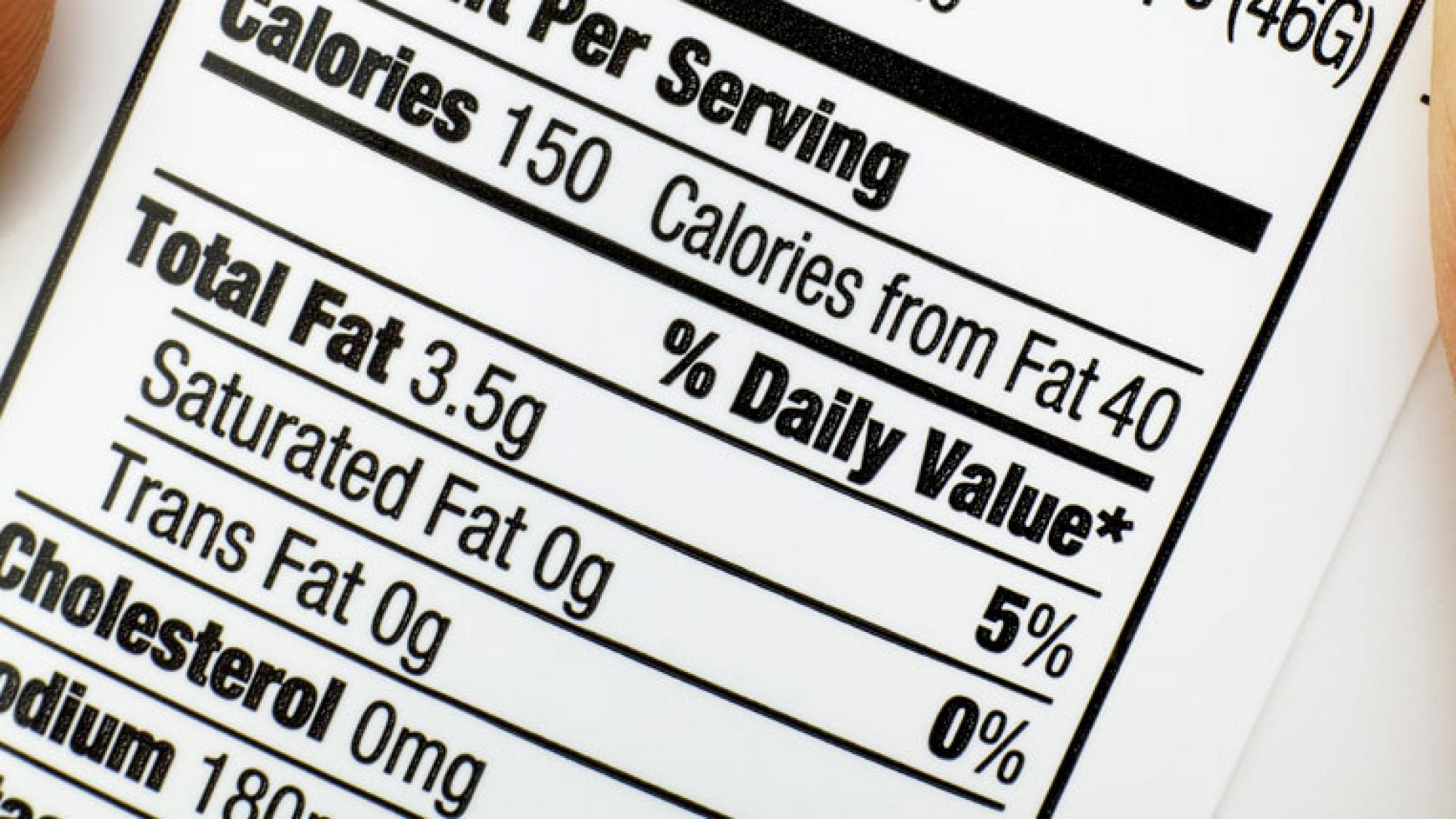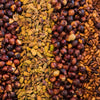Buyer Beware: What to Watch Out For When Buying Keto Products

It seems like everywhere you look, a new brand of keto products is popping up. Most are new brands, while others are decades-old consumer product brands that are venturing into the keto world, hoping to capitalize on it as it continues to grow in popularity. Some of these include brands that have been staunchly anti-fat (pro low-fat) for years and are now suddenly jumping on the high-fat bandwagon.
Want to be sure about keto-friendly foods? Download our Master Keto Food List with 100+ keto foods mapped out for you!
Because there are so many keto food products and supplements on the market, it’s critical to know how to determine which brands are the real deal, and which ones are jumping on the bandwagon without doing the necessary research and development to provide quality and effective products. The keto market is quickly becoming saturated with products, and not all of them are actually keto.
Ask yourself these questions when you consider a keto brand:
- What is the company’s mission, history and reputation? Have they promoted and supported the ketogenic lifestyle from inception? Or did they start after it became popular?
- What is the company’s portfolio of products? Does the brand produce other products besides ketogenic products, suggesting they don’t specialize in the ketogenic diet and lifestyle?
- Does the brand sell other products that conflict with the ketogenic lifestyle? For example, if the brand has historically pushed low-fat or high-protein products, that’s a red flag that they may not truly understand or believe in the ketogenic way of eating.
- Does the brand understand the ketogenic diet and do the products reflect that understanding? For example, do they have a true presence in the ketogenic sphere? Does their website offer a consistent keto message, including articles, recipes, white papers, and videos? If the brand’s website offers low-fat recipes right next to “keto-friendly” recipes, be careful. If their "keto meal plan" contains high-carb foods, stay away.
Ask yourself these questions when you evaluate keto products:
- Does it have the right macro breakdown? Keto products should be about 75% fat, 20% protein, and 5% carbohydrates. MCT Powder is a common ingredient as the main source of fat in meal replacement bars and shakes. Look for a high Fat: Protein+Carb ratio. The gold standard is 70% fat to 30% combined carb and protein. Watch out for products that contain too much protein. Consuming too much protein on the keto diet can keep you from achieving and maintaining ketosis. A red flag to watch out for are Protein Powders that claim to be keto. By definition, a high-protein product is not keto. If protein makes up more than 20% or so of calories, it would only be keto if you added healthy fats to increase the fat content. For example, a shake that has about 170 calories per serving should not have more than 8-9 grams of protein per serving in order to be keto.
- Does it contain “fillers” to reduce net carbs? Many keto products will advertise “low net carbs” but contain high levels of “filler” fibers such as inulin. While these soluble fibers do have less caloric value than other carbohydrate sources (about 1.5 kcal/g as opposed to 4 kcal/g), they do still have some effect on elevating blood sugars, evoking an insulin response. When consumed in excess, they can hinder progress and reduce your level of ketosis.
- Does it contain artificial ingredients? Avoid products with additives such as artificial sweeteners or colorings. Not only do these ingredients affect taste, they can also have negative health consequences.
-
What’s the quality of the ingredients? Don’t buy a product without first looking at the nutritional/supplement label. Here are two examples where quality matters.
- MCT Oil: This is a hugely popular product in the keto community. It’s an easy and effective way to add quality fat to your ketogenic lifestyle, support ketosis, enhance satiation, and improve energy. Many companies are now offering their own brand of MCT oil for on-the-go convenience. Like other keto products, it is important to look for quality in both sourcing as well as content. MCTs -- medium chain triglycerides -- have a unique carbon length making them quickly digestible to be converted into ketones for energy. MCTs are differentiated based on the number of carbons in their chain. When shopping for MCT oil, look for products that contain C8 (caprylic acid) and C10 (capric acid). C8 is quickly converted into ketones and a good source of immediate energy, while C10 contains antifungal properties and helps boost immunity and improve gut health.
- Exogenous Ketones: Ketone bodies include acetoacetate, acetone, and beta-hydroxybutyrate (BHB), which facilitate mental and physical performance. BHB is produced by the liver, from fat, for energy when glucose isn’t available. It ultimately becomes the body and brain’s primary source of energy. A well-formulated and extensively tested exogenous ketone supplement can make a big difference in enhancing ketosis to get you into fat-burning mode. It can also help minimize or even prevent symptoms of the Keto Flu as you become fat adapted. When considering an exogenous ketone supplement, look for goBHB® as an ingredient. The patented and trademarked ingredient is a high quality ready-to-use ketone body, giving athletes and busy professionals more energy, performance, and focus.
Bottom line
Look beyond the slick packaging and understand the brand and the products you’re using. If a company is rushing into the keto game to capitalize on what they consider a “fad diet,” or they’re using aggressive sales people motivated more by commission than by a quality product, it is probably a good idea to avoid them.-
Posted in
Authority Article, Nutrition, Nutrition Article, Starting Keto




